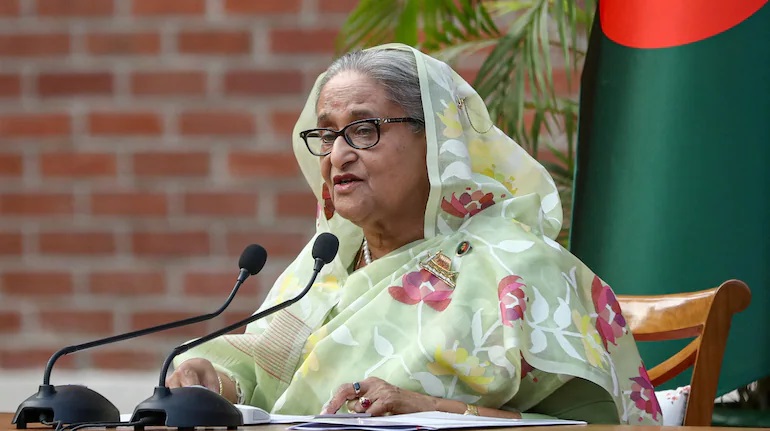Bangladesh’s Prime Minister, Sheikh Hasina, has resigned and fled to India after weeks of deadly protests in the South Asian country.
Reports of Hasina’s resignation was confirmed by the army and officials from the Bangladesh High Commission on Monday in Delhi.
According to the country’s leading national newspaper, she and her sister took a military helicopter to India.
Reuters also reports that they are seeking “safe shelter” away from her official residence.
Ms Hasina has been leading the country since 2009.
The protests, which began peacefully in early July, were initiated by university students demanding the abolition of civil service job quotas, a third of which are reserved for relatives of veterans from Bangladesh’s 1971 war for independence from Pakistan.
The protesters argued that the quota system was discriminatory and called for its overhaul. Although their initial demands were largely met, the protests have since evolved into a broader anti-government movement.
Hasina, however, remained defiant, labeling the demonstrators as “terrorists who are out to destabilize the nation.”
Meanwhile, the United Nations has condemned the “shocking violence” and called for restraint from both Bangladeshi politicians and security forces.
Since the demonstrations began, around 300 people have died, with at least 94 fatalities recorded on Sunday alone, including 13 police officers.
This marks the highest single-day casualty toll from any protests in Bangladesh’s recent history.
Similarly in the United Kingdom, Sir Keir Starmer condemned what he described as “far right” thuggery, as many demonstrators came out protesting against the immigration system of the country.
Hundreds of people gathered near a Holiday Inn Express hotel used to house asylum seekers near the northern town of Rotherham, throwing bricks at police and breaking several hotel windows, then setting bins on fire.
The prime minister, Sir Keir Starmer, said he will crackdown on these protesters, emphasizing that arrests would be made and those found guilty would be prosecuted.
In Nigeria, demonstrators came out in multitude in what they described as “EndBadGovernance” protest.
The protesters, majorly young individuals, are clamouring against the high cost of living and a 18 year high inflation, that have left many hungry and unable to afford costly food items in the country.
Addressing the protesters, President Tinubu said he heard them loud and clear, insisting the demonstrators should suspend their protest and give room for “dialogue” with the federal government.
Analysts believe that if the protest is not carefully managed by security officers and government officials, it might lead to the break down of chaos similar to what happened in major cities in Kenya last month.

